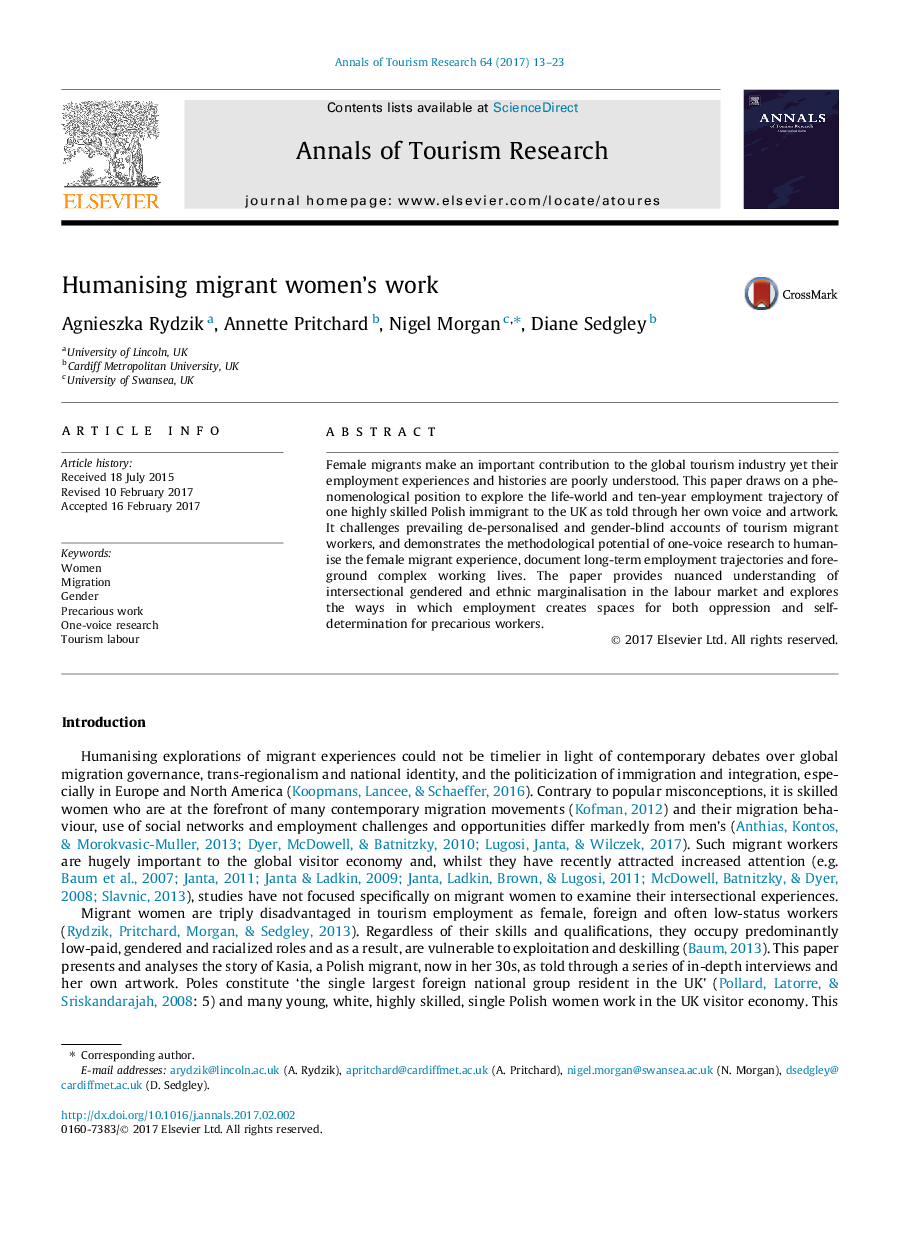ترجمه فارسی عنوان مقاله
کارهای انسانی زنان مهاجر
عنوان انگلیسی
Humanising migrant womenâs work
| کد مقاله | سال انتشار | تعداد صفحات مقاله انگلیسی |
|---|---|---|
| 112615 | 2017 | 11 صفحه PDF |
منبع

Publisher : Elsevier - Science Direct (الزویر - ساینس دایرکت)
Journal : Annals of Tourism Research, Volume 64, May 2017, Pages 13-23
ترجمه کلمات کلیدی
زنان، مهاجرت، جنسیت، کار دشوار، یک تحقیق صوتی، کار گردشگری،
کلمات کلیدی انگلیسی
Women; Migration; Gender; Precarious work; One-voice research; Tourism labour;
ترجمه چکیده
مهاجران زن سهم مهمی در صنعت گردشگری جهانی دارند، اما تجارب و تاریخچه اشتغال آنها به خوبی درک نمی شود. این مقاله بر روی یک موقعیت پدیدارشناختانه به منظور کشف مسیر زندگی شغلی و ده ساله یکی از مهاجرین بسیار متخصص لهستانی در انگلستان به کار گرفته شده است که به وسیله صدای خود و آثار هنری بیان شده است. این چالش ها غالب حساب های شخصی و جنسیتی مشاغل کارگران مهاجر گردشگری را تحت الشعاع قرار می دهد و پتانسیل روش شناختی تحقیقات تک صدایی را برای انسجام تجربه ی مهاجرت زن، سند های طولانی مدت اشتغال و زندگی های پیچیده کارهای پیشین را نشان می دهد. این مقاله درک مناسبی از حاشیه نویسی بین جنسیتی و قومی را در بازار کار ارائه می دهد و به بررسی شیوه های ایجاد اشتغال برای ستم و تعیین سرنوشت برای کارگران متخلف می پردازد.

